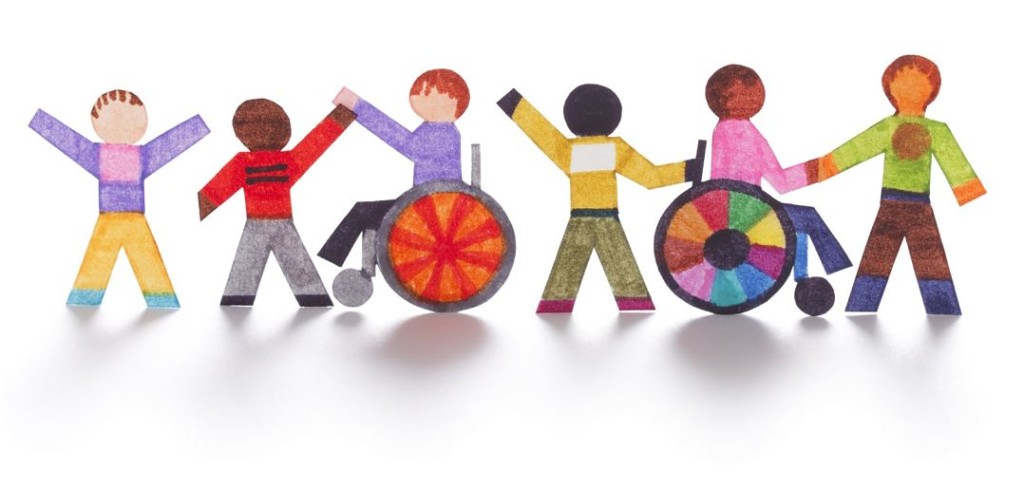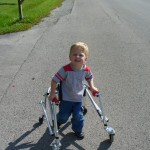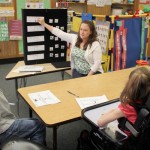
New Jersey Special Education Information
Every parent wants the very best for their child, and even children with special needs deserve the very best. For children with educational challenges the most valuable learning begins with a different kind of education. Special education classes are designed to give children who have difficulties learning the attention they need in order to succeed.
While mainstream classes can have anywhere from 17 – 24 students, special education classes in New Jersey typically only have 10 – 12 students. The smaller classes ensure that children with special needs are given more one-on-one time with their teacher so problems such as reading can be addressed and resolved.
Why Would A Child Be In Special Education?
Children can be placed in special education for a variety of reasons. Sometimes a child simply has a learning disability such as Dyslexia and they need alternative learning methods, other children may have a physical disability, requiring them to leave class for therapies.
If a child is leaving class two or three times a week for either occupational or physical therapy, they would miss too much class time. However, special education classes, unlike mainstream classes, build in time for children to leave and not miss integral aspects of the daily lessons.
Benefits To Special Education Enrollment
In addition to smaller class sizes, New Jersey’s special education classes often have two teachers, the primary educator and an assistant. The assistant, or classroom aid, is the person who can make sure each child is performing OK and no one is getting frustrated with the lesson.
The classroom aid can also ensure that children with physical disabilities get the help they need. Since many younger children with disabilities sometimes have trouble with dexterity, tasks such as holding a pencil or tying a shoe, often viewed as simple, can be quite hard for these children. The classroom aid can quietly walk the classroom and help students with such tasks while the teacher is conducting the lesson. He or she will provide individualized help to the students who seem to be struggling, making learning more fun and enjoyable.
In addition, smaller special education classes with two teachers allow the class to be split up. While one teacher may be working with half the class on math skills, the other teacher will be working with the other half of the class on reading skills. Being able to split the class up in such a way that not everyone is working on the same thing at once gives the teachers a chance to assess each child’s needs and discuss with their parents educational methods that could bring more desirable outcomes.
These classes are organically designed to assist children with a wide variety of special accommodations. They are equipped to handle children who live with not only learning and physical disabilities, but also children with emotional disturbances and disorders that make focusing difficult. Another unexpected, yet pleasurable, aspect to special education that parents do not consider is the friendships forged in these classes. Since there is often one special education class per grade, children will progress through school with many of their friends
As it is with children in mainstream classes, children with special needs will enjoy going to school everyday because they know that they will be able to see their friends. Yes, they make not particularly enjoy their lessons, but learning with their friends will make them happy to be there.
Potential Problems With Special Education
One potential downside to special education classes could be that children are not given the opportunity to learn a lot about each subject. Since classes are designed to accommodate needs, lessons may be altered and it may seem as though portions are excluded. However, with all accommodations considered, parents should realize that everything will be learned in time; the slower paced lessons, while they may seem drastically different from mainstream ones, are actually helping special needs children learn in their own way.
Some parents may resist putting their child in special education because they believe that it will label their child as “different” or abnormal” but the truth remains that these classes are only looking to better the education of their child.
How Do Special Ed Classes Operate?
These classes operate off of an IEP system. IEPs, or Individualized Education Plans, are formal documents issued by the school, is legally binding and outlines specific educational goals for each child
Rather than the entire special education class receiving one IEP, each child receives their own. This allows the teacher to fully understand the reason each child is in the class and generate a plan for their own, individualized, educational purposes. In other words, no two children in one of these classes will be learning in exactly the same way.
Some parents may be wondering how exactly a public school in New Jersey goes about helping each child individually, while simultaneously helping everyone as a whole. The answer is simple: they develop lessons and programs that help everyone and pull each child aside individually throughout the day to work on specific problems in more detail.
Programs that may assist the class as a whole include swimming and bowling field trips. Because many children live with dexterity or physical disabilities, taking a few hours out of a Friday, or any day, to take part in activities such as these, can drastically improve skills.
When Can Special Education Begin?
Children will often be introduced to the special education program during preschool and, from there, classes can continue through senior year of high school. As the years progress, students will learn variously more difficult lessons, much like students in mainstream classes. While it is likely that children with severe learning or physical disabilities will remain in special education their entire school career, some children do receive the opportunity to be transitioned into mainstream classes.
These transitions are determined by both the parents and the educators. If everyone believes that the child no longer needs services such as OT, PT or additional assistance from an aid, they will gradually be moved into larger classes with only one teacher. The process of transitioning out of these classes is done slowly, usually one class at a time, because the school will want to make sure that the child is not overwhelmed or incapable handling the workload.
While a situation where the child is unable to handle the workload and maintain decent grades is unlikely, by moving children from special education to a resource class and then into all mainstream classes, the school system can more easily and accurately assess the child’s learning capabilities.
Standardized Testing
The state of New Jersey currently requires that all students take a yearly standardized test as a means of assessing knowledge learned. Unless a child’s IEP states that he/she is exempt from part, or all, of the test, they will be required to take the exam. Taking IEPs into account, children with special needs are often tested under special conditions. While the material in the test is usually the same, or similar, to that of the state-wide test, special needs children can receive either untimed or extended time exams.
By taking away, or extending, the time restrictions set on the exam, children in special education can spend a few extra minutes reading the questions, processing the material and answering to the best of their abilities. Other accommodations that may need to be met include an increased number of breaks, a separate testing room, a larger print test booklet, response modifications and various other exceptions. If it is believed that a child would benefit from an adaptation not listed, the state will review the needs and either approve or deny the proposal.
In the case of the child having a severe disability, but not being exempt from taking the test, they will be given the Alternate Proficiency Assessment. This exam is portfolio style and designed to measure the progress of students whose disabilities are so severe regular tests would be unfair.
Other Notes
One aspect of special education that many people do not know about is the week or so of recreational activities where student’s skills are highlighted. During these field day events children will leave the work behind and simply display their newly acquired physical skills.
These recreational days in New Jersey’s special education are never limited to the specific school though. Rather, all of the special education classes from the district are brought together and compete against each other in friendly games and events.



